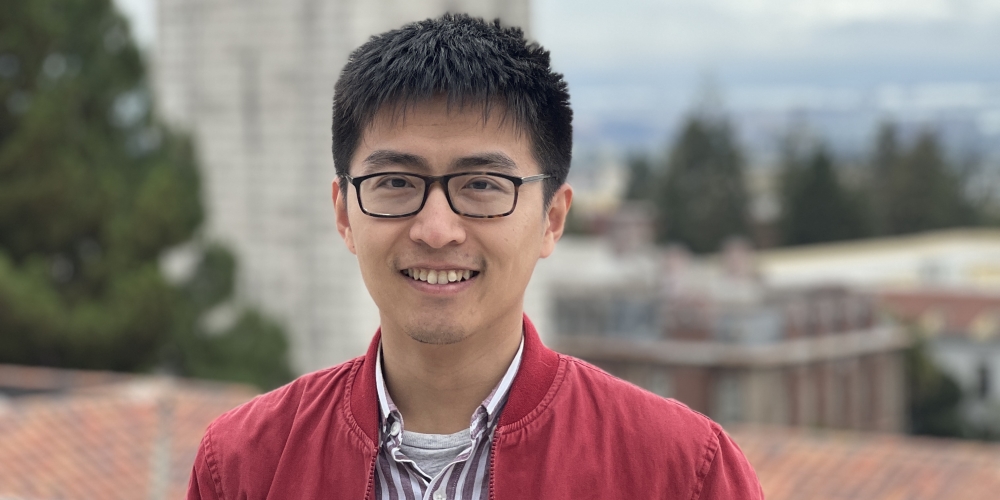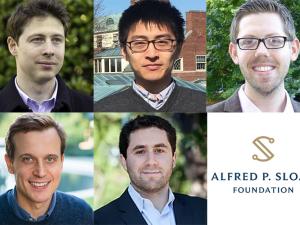

Research Bio
Liang Dai is the Michael M. Garland Chair and Assistant Professor of the Department of Physics, and an Alfred P. Sloan Research Fellow. His research interest lies in astrophysics and cosmology. Dai studies gravitationally magnified celestial sources in distant galaxies behind galaxy or galaxy cluster lenses. By exploiting extreme gravitational magnification, his group study super star clusters in the young Universe, aiming to understand the physics of star formation and feedback under extremely dense conditions. His group also study highly magnified individual supergiant stars in the distant Universe as a sensitive probe of dark matter structures on scales smaller than galaxy formation, which sheds light on the microscope nature of dark matter. Dai and his student will be running a new JWST observation program to study super star clusters in the young Universe at mid-infrared wavelengths.
Dai studies gravitational waves from black holes and compact stars as a non-electromagnetic window to see the Universe. He is interested in a range of research topics, including detection and parameter inference of gravitational wave signals recorded by LIGO/Virgo/KAGRA, gravitational lensing of distant merging black holes, and Galactic double white dwarf systems as low-frequency gravitational wave sources. Recently, Prof. Dai investigated the potential use of Fast Radio Bursts for fundamental physics through precision timing.
Dai and his group devise novel methodologies to search for hints of New Physics in the Cosmic Microwave Background (CMB) and in the cosmic Large Scale Structure, which can inform us about the physics of the primordial Universe. His group studies the so-called the cosmic birefringence effect as a sensitive probe of ultralight axion fields. His group is also developing a novel method that leverage polarized radio emission from galaxies for measuring cosmic shear and birefringence, which can be applied to upcoming radio galaxy surveys.
Dai received a B.S. in Physics from Peking University in 2011. Later on, he earned his Ph.D. in Physics from the Johns Hopkins University in 2015 working on theoretical cosmology. From 2015 to 2018, he was awarded an NASA Einstein fellowship and was appointed a postdoctoral Member at the Institute for Advanced Study in the School of Natural Sciences. From 2018 to 2020, he was a long-term John Bahcall postdoctoral fellow at the Institute for Advanced Study, before he joined the faculty in the Department of Physics at the University of California, Berkeley.
Research Expertise and Interest
astrophysics, physical cosmology

